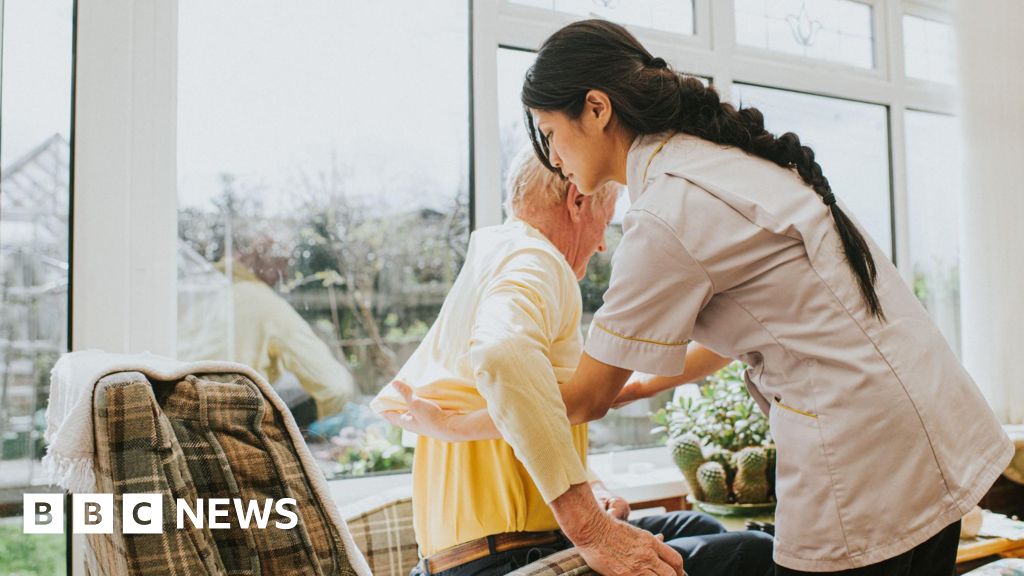The number of overseas workers, students and their families applying for visas to come to the UK has fallen by a third over the last 12 months.
The sharp decline follows rule changes, introduced by the Conservative government, which banned most international students and health and social care workers bringing family to the UK.
Provisional figures from the Home Office suggest the number of migrants and their family members applying for the visas fell from around 141,000 in July 2023 to 91,000 last month.
There was a particularly big drop in the numbers applying for health and care worker visas which dropped by 80% to 2,900.
The Home Office said it would “ensure we train up our homegrown workforce and address the shortage of skills”.
A spokesperson for the department said that immigration brought “many benefits to the UK, but it must be controlled and delivered through a fair system”.
Nadra Ahmed, executive co-chairman of the National Care Association said the sector had started to see some staff return home or move to countries with “a less hostile environment around immigration”.
Speaking to the BBC’s Radio 4 Today programme, she said: “If we had a domestic workforce willing to work then we wouldn’t need these international recruits.”
She added it would “take a few years” to build up a domestic workforce and warned that vacancies in the sector could rise to unsustainable levels.
The reduction in international students applying for visas could also hurt universities already facing financial pressures.
The Migration Observatory says the decline in student visa applications could partly be down to country specific factors such as the Nigerian currency crisis.
New rules introduced by former Prime Minister Rishi Sunak in a bid to reduce immigration levels down from record highs also appear to have caused a decline in visa applications.
In 2022, legal net migration soared to 764,000, but fell by 10% the following year. The Office for National Statistics says it was “too early to say if this is the start of a downward trend”.
In 2021, the immigration rules for care workers had been relaxed to ease recruitment problems following Brexit.
Two years later, then-Home Secretary James Cleverly announced that the government would ban care workers from bringing family dependants to the UK, as part of efforts to reduce net migration numbers.
That came after a previously-announced ban on most overseas students bringing dependents with them. Visas issued to student dependants had risen dramatically from around 16,000 in 2019 to 135,000 in 2022.
The government also increased the minimum salary for skilled overseas workers wanting to come to the UK from £26,200 to £38,700.
To qualify as a skilled worker, applicants need to accrue 70 points under the points system introduced in 2020.
Points can be gained in different ways including by having a job offer in a sector with shortages or holding a PhD.
The Migration Observatory think tank said the Home Office’s most recent data did not demonstrate any “clear impact” from the higher salary threshold.
The previous government had also proposed raising the salary someone would need to earn to bring family members to the UK from £18,600 to £38,700.
Following a backlash it reduced the threshold to £29,000 and said further increases would be introduced at an unspecified date.
Last month, Home Secretary Yvette Cooper said the new Labour government would keep the threshold at £29,000 until a review by the Migration Advisory Committee was completed.

